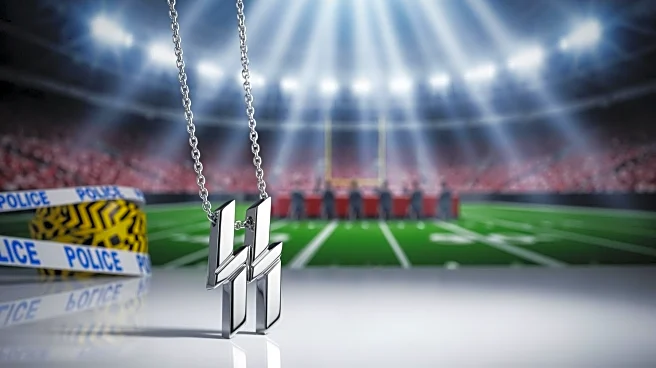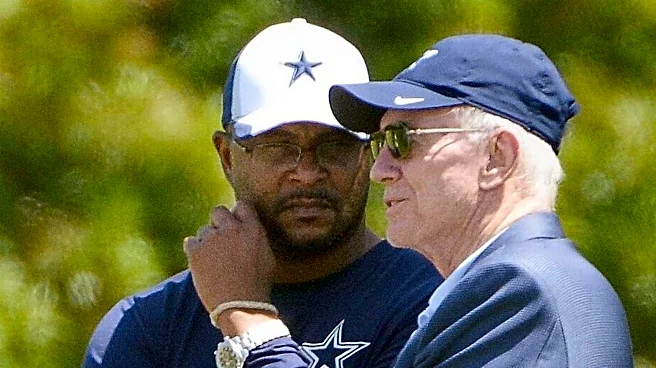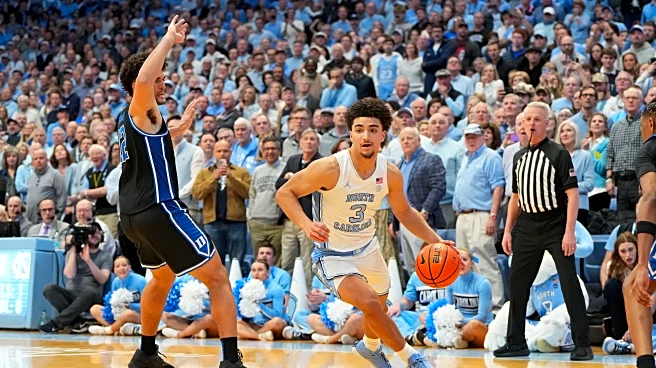What's Happening?
Jordon Hudson, associated with the North Carolina football program, made headlines during a recent game against Stanford by wearing a necklace with the word 'Banned' in cursive script. This gesture was
a response to earlier reports suggesting she had been barred from team facilities. Hudson, who is the partner of Tar Heels head coach Bill Belichick, appeared on the sidelines with an 'All Access' credential, contradicting the rumors of her ban. The university had previously clarified that Hudson, while not an employee, is welcome at the Carolina Football facilities. Her appearance and the necklace have sparked significant attention on social media, with reactions ranging from amusement to admiration.
Why It's Important?
The incident highlights the intersection of personal relationships and professional sports environments, raising questions about access and influence within collegiate athletic programs. Hudson's public defiance of the rumors through her necklace serves as a statement on her role and presence within the UNC football community. This situation underscores the complexities of non-employee involvement in sports teams and the potential for public perception to impact team dynamics. The attention drawn by Hudson's actions may influence how universities manage relationships between staff and their partners, especially in high-profile sports settings.
What's Next?
As the Tar Heels aim for bowl eligibility, the focus may shift back to their performance on the field. However, Hudson's actions could prompt further discussions about access and influence in collegiate sports. The team needs to secure victories against Wake Forest and Duke to ensure postseason play, which may redirect attention from off-field controversies. The university might also consider addressing public perceptions and clarifying policies regarding non-employee access to athletic facilities to prevent future misunderstandings.
Beyond the Headlines
Hudson's bold statement through her necklace could have broader implications for how personal branding and public image are managed in sports. It raises ethical questions about the balance between personal expression and professional decorum in collegiate athletics. The incident may also influence how other sports programs handle similar situations, potentially leading to more defined policies on access and involvement of non-employees in team activities.









